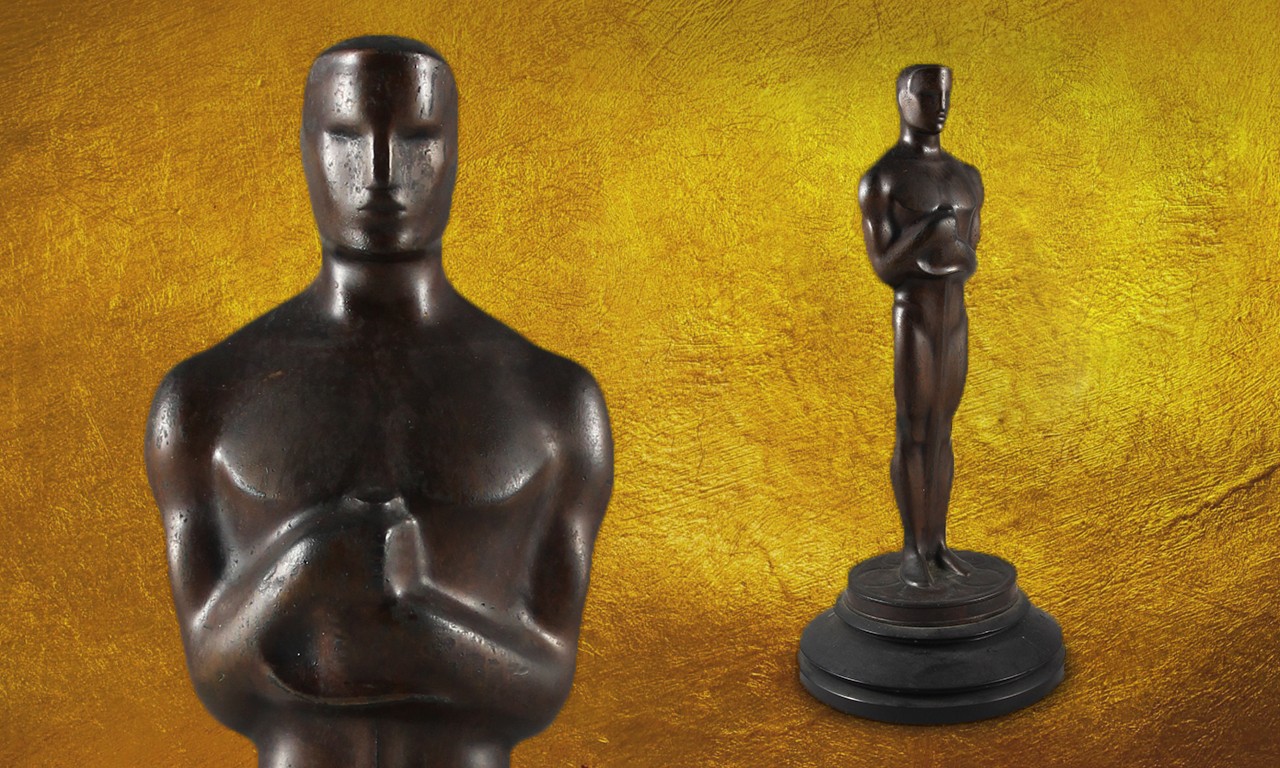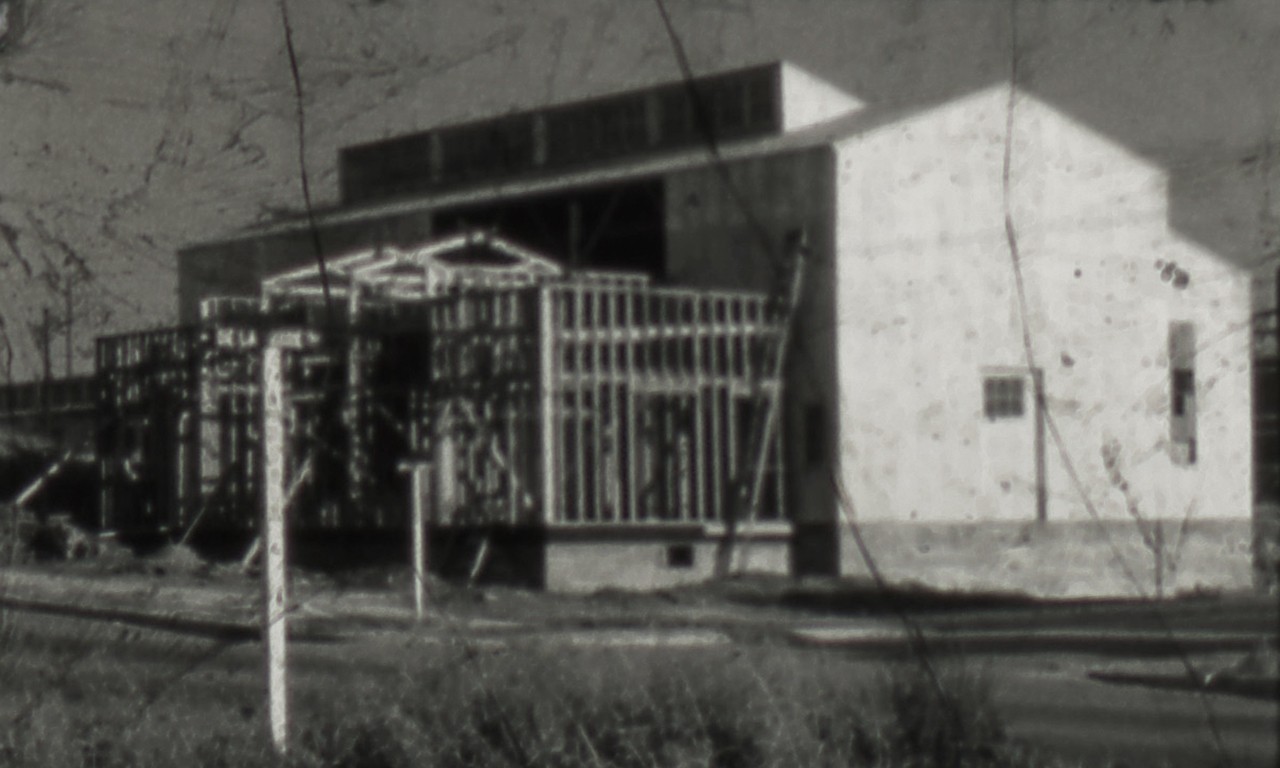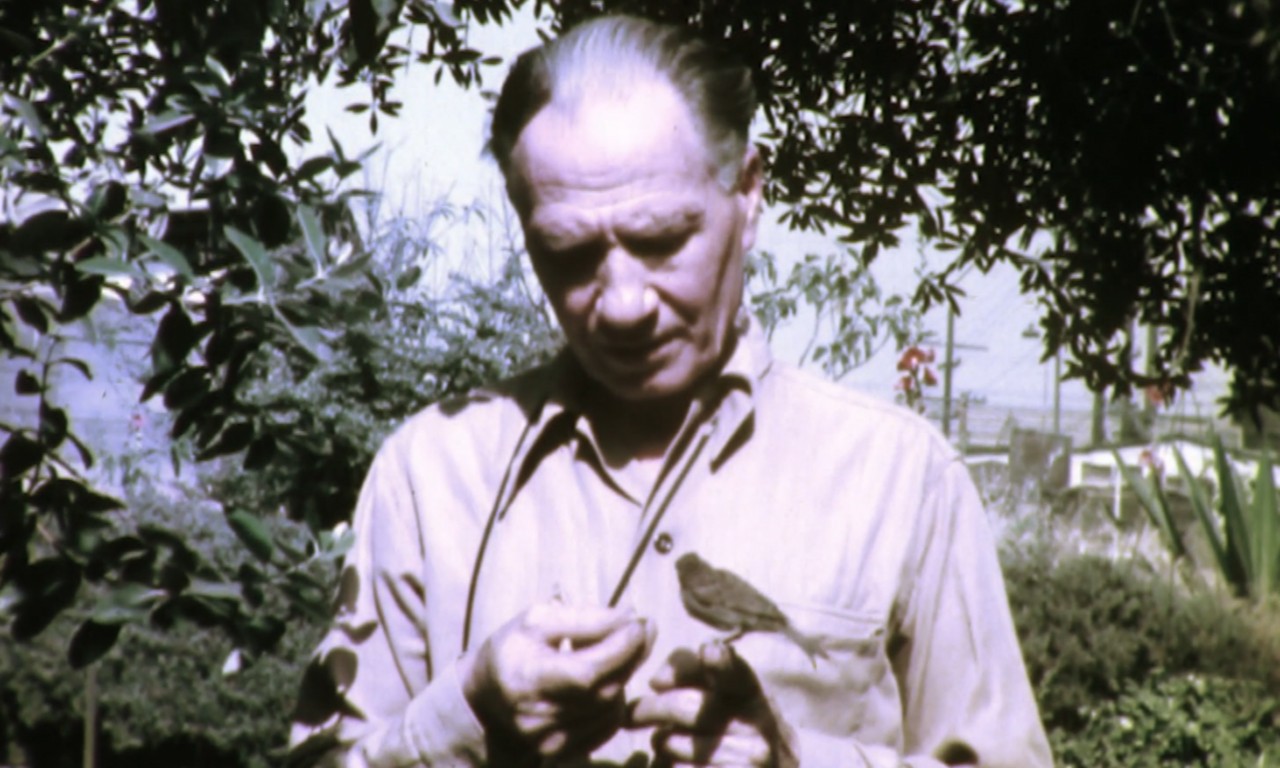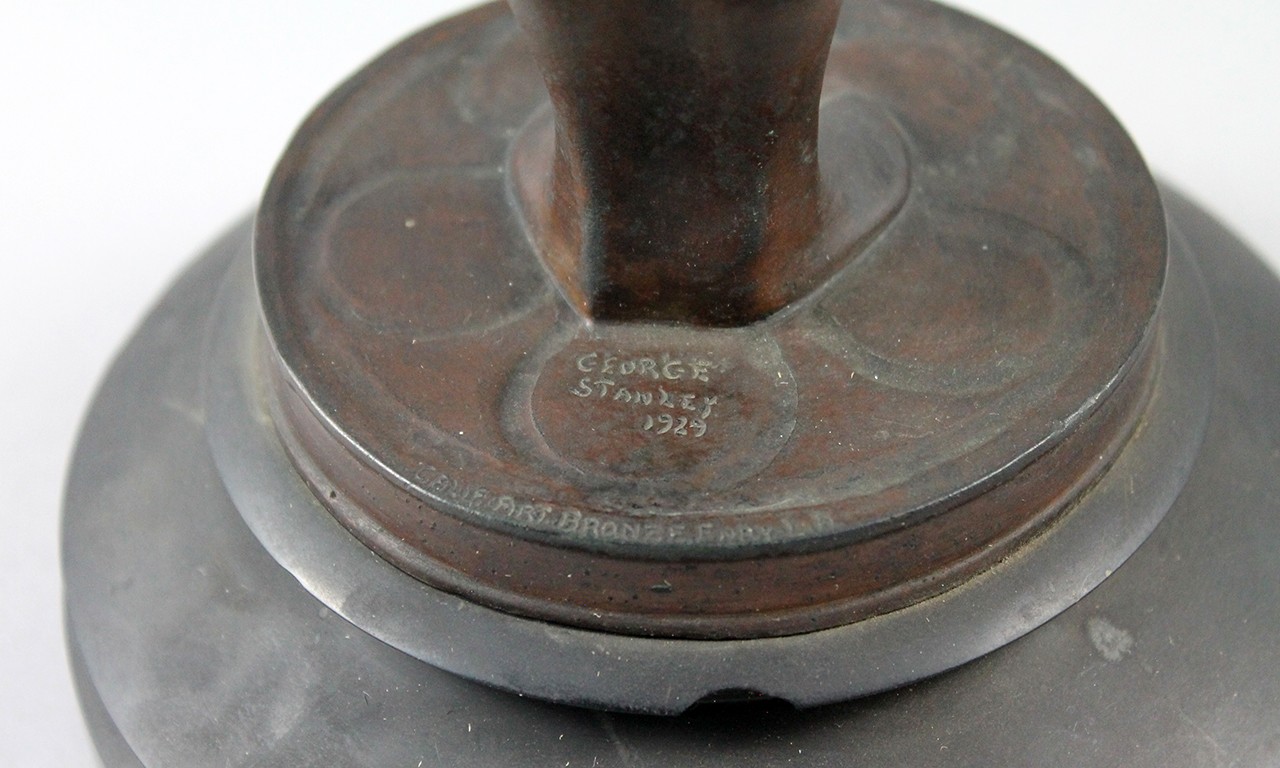 |
Academy Award of Merit (Oscar), 1929
California Bronze Foundry; Los Angeles, California
Bronze; 11 3/4 x 5 1/4 in.
76.30.15
Gift of the Estate of Paula Nelli |
Premiere Time
With the 93rd Academy Awards now behind us and an exciting historic win for Chloé Zhao as the first woman of color to receive an Oscar for Best Picture, one might wonder about the history of the award ceremony. Though it now seems as much of a well-established staple as the Nobel Prize, the Oscars—perhaps unsurprisingly—came from humble beginnings. One thing has remained consistent over the past century, however. The design of the golden Oscars awarded today varies little from the ones first given out 1929. This fact is one that our collection can attest to, because in one of the most exciting Collections Storage finds ever, the Bowers Museum might very well have one of the first Oscars ever made.
|
Casting Sculpture in the 'Lost Wax Process', 1932
Guido Nelli (Italian-born American); Los Angeles, California
16mm film; 4:57
76.30.110
Gift of the Estate of Paula Nelli |
Dangling a Karat
The concept for “Oscar,” the colloquial name for the Academy Award of Merit, originated shortly after the creation of the then brand-new Academy of Motion Picture Arts and Sciences in 1927. At one of their first banquets, several Hollywood executives were brainstorming ways to encourage the creation of particularly excellent pieces of cinema and settled on an award that would carry prestige. The Art Director of Metro-Goldwyn-Mayer Studios, Cedric Gibbons, first drew the design as an Art Deco rendering of a mostly bare knight. To translate the drawing into three dimensions, the Academy reached out to George Stanley, a Los Angeles area sculptor who had just graduated from the Otis Art Institute the year prior and had a promising career ahead of him. However, the production of the awards does not end there. With the model finished, it was Guido Nelli who cast multiple copies of the awards in bronze.
 |
Still from Construction of the Foundry Building, 1927
Guido Nelli (Italian-born American); Los Angeles, California
16mm film
76.30.44
Gift of the Estate of Paula Nelli |
Means of Production
Guido Nelli was born in Italy in 1881. As a young man he himself trained in sculpture under Ernesto Biondi, one of the foremost Italian sculptors of the late 19th century. Like many others seeking to emigrate from Italy at the time, Nelli moved to Petrograd (Leningrad) to work as a sculptor and monument designer for the imperial family. He enjoyed a stable job there for 15 years until the Revolution of 1917 forced him to flee for his life. He was fortunate to make his way back to Italy and secure passage to the United States. In New York he worked for a while at the only bronze foundry for art in the United States. In 1924 he decided to set out on his own once more and journeyed west to Los Angeles. There he founded the California Art Bronze Foundry in 1927, the first bronze foundry for sculptures in the West. Major sculptors of the 1920s and 1930s like Charles M. Russell and Hughlette Wheeler brought their works to Nelli to be cast. When it came time for Stanley to reproduce his award, his only option was to work with Nelli. Footage shows Nelli working in the lost wax casting technique that was employed to create the first Academy Award of Merit.
 |
Still from Birds, early 20th Century
Guido Nelli (Italian-born American); Los Angeles, California
16mm film; 6:23
76.30.41
Gift of the Estate of Paula Nelli |
Nelli-vision
Continuing to paint and sculpt right until the end, Guido Nelli died in 1952. His wife, Paula Nelli, lived for another 22 years before herself passing away. There is no information as to why, but their estate left the entirety of their fine art collection to the Bowers and Riverside Museums. In 1976 the Bowers Museum accessioned a wonderfully wide range of objects formerly in the Nellis’ collection including Russells, film reels from Guido Nelli’s life whose cumulative runtime doubles that of Gone with the Wind (while managing to be far less problematic), and this recognizable statuette which—by one of three plausible accounts—earned the nickname Oscar because Bette Davis thought its derriere resembled that of her husband, Harmon Oscar Nelson.
 |
Detail of Academy Award of Merit (Oscar), 1929
California Bronze Foundry; Los Angeles, California
Bronze; 11 3/4 x 5 1/4 in.
76.30.15
Gift of the Estate of Paula Nelli |
Oscar Wildness
The award featured in this post is interesting for several reasons. The first of these is that it is the only Oscar that Guido Nelli decided to keep for his personal collection. It is signed and dated by the artist, “George Stanley, 1929,” indicating that at the very latest it would have been made following the 1st Academy Awards in that same year. Secondly, the statuette was never gilded, as was the case with even the first ceremony. The rare combination of the signature and the lack of gold indicates that this was neither a prototype, nor was it ever intended for the stage. Often when creating multiples of an artwork, a technician like Nelli received at least one signed, completed work in addition to their payment. Many times they will also keep the bon à tirer ("good for printing" in French) against which all copies are compared. Despite the likeliness that this is one or the other we cannot confirm without more documentation. Either way this is evidently one of the earliest Academy Awards, potentially even the first ever cast.
Text and images may be under copyright. Please contact Collection Department for permission to use. References are available on request. Information subject to change upon further research.





Comments 2
Wowzers! This made my day! Can't wait to see it in person!
To say the least, I am elated to find this information on the early Oscar, the photo of the foundry and Guido Nelli that also relates to the casting of my great-grandfathers statue.